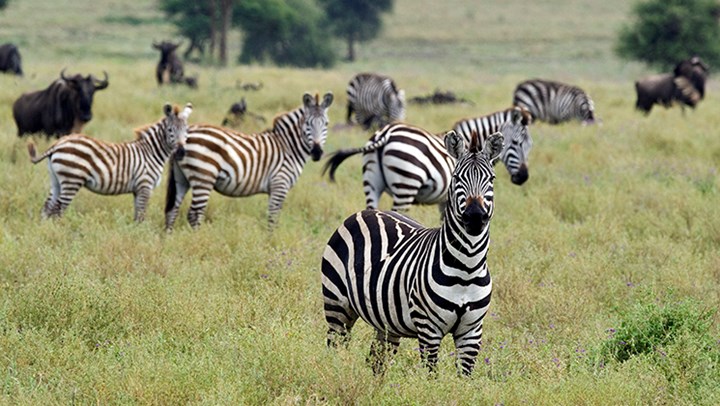
by Steve Scott, Outdoor TV Host - Friday, December 15, 2017

We live in a connected world. Two-and-a-half centuries ago, it took months for news to travel from Europe to the American colonies. Today, through the use of the internet, smartphones and social media, we can almost instantly learn news from across the globe. While our age of constant connectivity can be beneficial, it can also lead to an idea, campaign or protest to morph or spin out of control, resulting in unforeseen and unintended consequences.
Take anti-hunters for example. Botswana, with its sparse population, vast mineral wealth and ecotourism, draws in the Okavango Delta and is not as dependent on revenue from sustainable-use hunting as many other African countries. When wealthy anti-hunting, non-governmental organizations (NGOs) and their social media minions pushed to ban hunting on government and community lands in Botswana, the politicians caved and the anti’s celebration began.
“No more cruel hunting. Live and let live. Botswana has evolved,” the anti’s cried with glee. But the indigenous people of Botswana that actually live next to wildlife did not see it that way.
One of the many benefits of hunting tourism in Africa is the amount of jobs it creates for the local people. When Botswana banned hunting in 2014, it promised ecotourism would take the place of hunting but it didn’t. Ecotourism is economically viable only when certain tourist amenities such as roads and luxury camps or lodges are built. In the not-so-tourist-friendly Kalahari habitat where the San people (also referred to as “Bushmen”) live, ecotourism projects were not economically feasible. When paying tourist hunters left Botswana, hundreds of jobs went with them. Trackers, skinners, cooks, maids, gardeners, wait staff and a myriad of other wage-earning jobs disappeared when hunting was banned. With no new ecotourism projects to replace the hunting economy, the Bushmen were left with no jobs, no prospects and a 55 percent unemployment rate. With few options, many Bushmen are forced to break the law by poaching in their historic homeland to provide for their families.
While the current plight of the Bushmen is an ongoing human tragedy, wildlife is no less affected, as the consequences of Botswana’s hunting ban do anything but save wildlife. Botswana’s short-sighted prohibition against hunting is responsible for the death of thousands of animals, with more dying every day.
Without income from hunting, dozens of concession holders—the safari operators who invested thousands of dollars in improving habitat—were forced off their hunting lands, taking their jobs and checkbooks with them. When the diesel ran out, water pumps on scores of bore holes throughout the hot desert terrain ground to a halt. The result? Once lush, vibrant pans in the desert—the only water source for miles—quickly evaporated in the harsh African sun. The only waterhole almost every antelope and pachyderm in the bush had ever known was gone. Elephants, rhino, leopards, buffalo and lions perished. The great herds of zebra, wildebeest, kudu and dozens of other antelope species all died because the hunters had gone.
Meanwhile, from their luxurious tented camps in the Okavango Delta, the anti-hunters will tell you the wildlife is fine—that antelope, elephants and the other species are thriving. While this is true in the choice game-viewing areas of the Okavango Delta, Chobe and a few other national parks, such is not the case elsewhere in the vast majority of Botswana’s land. Whether it be ignorance or intentional misrepresentation by the antis, the fact remains that in communal and government lands that are not as conducive to camera-carrying tourism, both wildlife and habitat have suffered greatly.
While government officials and NGOs scramble to play the blame game, one fact is proven irrefutable: Hunting created the revenue that improved habitat by providing permanent water in the desert. When hunting ceased, the water dried up and the animals died. Ironic, isn’t it? Presumably well-intentioned people and organizations mounted an emotion-based crusade to save animals from the supposed cruelty of the hunter’s bullet. Yet in the end, the anti-hunter’s utopian scheme to save wildlife was the direct cause of the death of thousands of animals.
The concept of sustainable-use hunting and its benefits to economies is higher-order thinking. Killing one animal for the benefit of many may seem to be a difficult intellectual concept to grasp but the concept is much easier to understand when people think with their brain instead of their heart.
■ ■ ■
About the Author
Steve Scott is a reformed attorney, long-time university instructor and producer/host of the outdoor TV shows “Safari Hunter’s Journal” and “Steve Scott’s Outdoor Guide.” For more information, visit stevescott.tv.
E-mail your comments/questions about this site to:
[email protected]
Proudly supported by The NRA Foundation and Friends of NRA fundraising.
